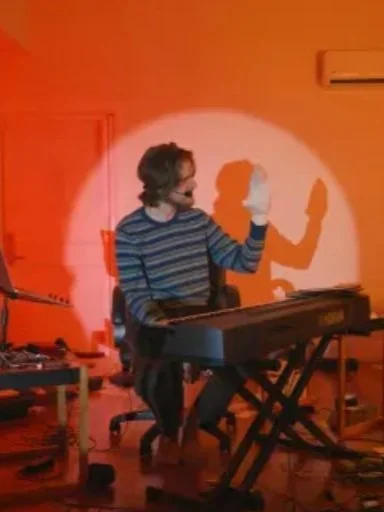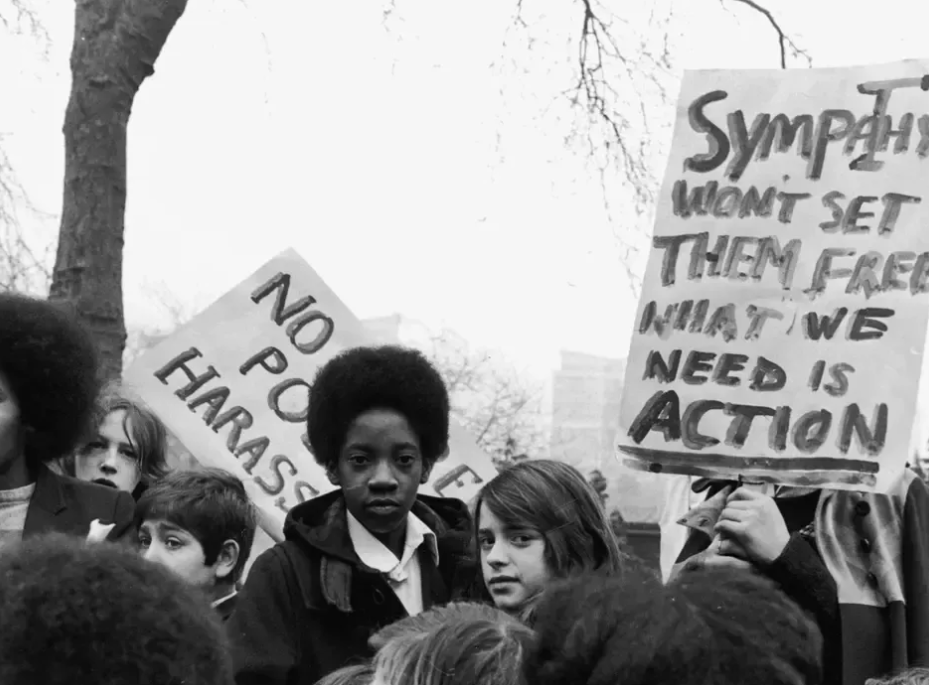When a sock explains it all...
This week, NSFS shines the work of a white dude, Bo Burnham, so this one's for all those GWM looking for semi-positive role models <3
Dear friends and fam,
One, since it's the holidays and I'm feeling generous, I'd like to address the white men who still read this newsletter, despite me taking a metaphorical dump on their demographic rigorously and regularly. As an educator, I know that emphasizing positive behavior is just as important as pointing out inappropriate behavior. Calling out must also call in, so here's to that.
I want to introduce you to my fearless college intern Abs, who has been single-handedly helping me keep two newsletters afloat during a particularly hectic fall. Not only that, but Abs is a great writer as well (yes, I know, I won the undergrad intern lottery). I love this post, as it offers a fresh perspective on systemic racism from a young person who gets it. So! Without further ado...
Hi everyone! My name is Abs, and I am interning for Allison! I am a junior journalism and media major whose goal is to deepen my understanding of what the Black community is experiencing and to amplify the voices of People of Color.
My favorite comedian Bo Burnham came out with "Inside" on Netflix in May, shot, directed, written, edited, and filmed by himself in his home during COVID. It embodies what we all felt over quarantine and the months after, especially the psychological impact of social isolation. The special (in my opinion) peeks at an argument he has about the genocidal atmosphere and upbringing of western civilization… with a Marxist puppet.
In the first verse, Bo talks about nature from a naive perspective; the song is for kids. He sings
"Every cricket and fish in the sea gives what they can and gets what they need."
Then Bo introduces Socko, along with the puppets' existential dread (which Bo is oblivious to.)
BO: "Hey, Socko! Where ya been?"
SOCKO: "I've been where I always am when you're not wearing me on your hand, in a frightening, liminal space between states of being! Not quite dead, not quite alive! It's similar to a constant state of sleep paralysis!"
There are many ways to interpret the "frightening liminal space" Socko experiences without Bo's hand. Maybe a metaphor for the conversation between the oppressor and minoritized voice. In this context, Bo has the privilege of caring about whatever/whenever he wants. Still, Socko is privileged to have the platform of his oppressor.
Bo asks Socko if he has anything to add. He replies,
"Boy, that sounds complicated… I probably wouldn't say anything you haven't already said yourself..."
Socko takes the opportunity to rant about the faults of modern society and capitalism from a Marxist/anarchist perspective.
Bo nods along in agreement with what Socko says and seems sympathetic at first.
BO: "What can I do to help?"
SOCKO: "Read a book or something. I don't know. Just don't burden me with the responsibility of educating you. It's incredibly exhausting."
BO: "Sorry, Socko. I was trying to become a better person."
Bo takes on the role of the "well-meaning white guy" who unfairly burdens Socko with the expectations of being ready to explain how he is being targeted/affected. He wants to be a good guy but won't do the work for himself.
(Protestors/AP Images)
SOCKO: "Why do you rich fucking white people insist on seeing every socio-political conflict through the myopic lens of your own self-actualization? This isn't about you. So either get with it or get out of the fucking way."
Bo listens to Socko until he's implicated as a "rich fucking white" person who views every "socio-political conflict through the myopic lens of his own self-actualization." That's when Bo threatens to take away his platform, forcing him to quite literally become a puppet.
BO: "Watch your mouth, buddy. Remember who's on whose hand here."
SOCKO: "But that's what I've been—Have you not been fucking listening? We are entrenched in a…."
BO: "Alright, alright." (Starts to pull Socko off-hand—sending him back to the paralytic abyss.)
SOCKO: "NO. PLEASE, WAIT. I don't want to go back! I can't go back. Please. Please. I'm sorry" (Socko begs. He is broken. Bo reasserts his hand.)
The same person who gave Socko the platform to speak immediately threatens to take it away when Socko implicates him as part of the problem. Why are white people so uncomfortable when it comes to conversations about their own racist actions or tendencies?
White fragility is the discomfort white people feel when they are either called out for something racist they do/say. Especially in discussions about racism/white privilege, it shuts down constructive conversation. Reactions of guilt, fear, or denial shift focus to hurt feelings at the expense of the experiences of POC. Chidozie Obasi says, "Sometimes, it feels as if being accused of racism causes an even bigger problem than the racism itself." (Here is Obasi's take on Ijeoma Oluo's Mediocre: The Dangerous Legacy of White Male America, which we'll be talking about in January for NSFS)
So, why should POC think about racist social/economic/political issues from the perspective of people without direct connection or experience with it? And how can white people hold each other accountable to stop institutional racism?
This is where we need to step up and remind our peers that being called out isn't character assassination but rather an avenue to identify and discuss these problems openly. We have to handle our discomfort with addressing our white privilege because it might stop POC from speaking out.
I have seen many instances of white fragility in my life, the most notable being a recent incident in an organization on campus. A BIPOC individual was denied a bid by another member for speaking out against a professor using slurs in the classroom.
It went further when the organization deemed it unimportant enough to address until the person took it to social media. The organization includes mostly white girls who did not know how to handle, initiate, or guide a conversation about what happened.
Intentional conversations about bias are an essential first step in breaking the pattern of discomfort. But, like Socko says, expecting Black people and POC to explain everything is "incredibly exhausting." Hence, we need to research but also know when to be quiet. Our goal is amplifying voices and experiences, not explaining on behalf of POC. So educate yourself, get involved, call out microaggressions, and practice consistent checking of your own privilege.
Char Adams' op-ed "What You Need To Know To Be A Better Ally" discusses ways to be a better ally to marginalized people. She gives examples of how to get involved locally and on a broader scale and ways to improve yourself.
(Healing The World With Comedy/Netflix)
Here: Another favorite, Bo adopts the persona of a white man who appoints himself the savior of the universe.
That's all we wrote this week!
Until next time,
Allison & Abs















I come by my disdain honestly in a long tradition of southern writers who remain obsessed with the uneasy cultural quagmire of postbellum southern history.